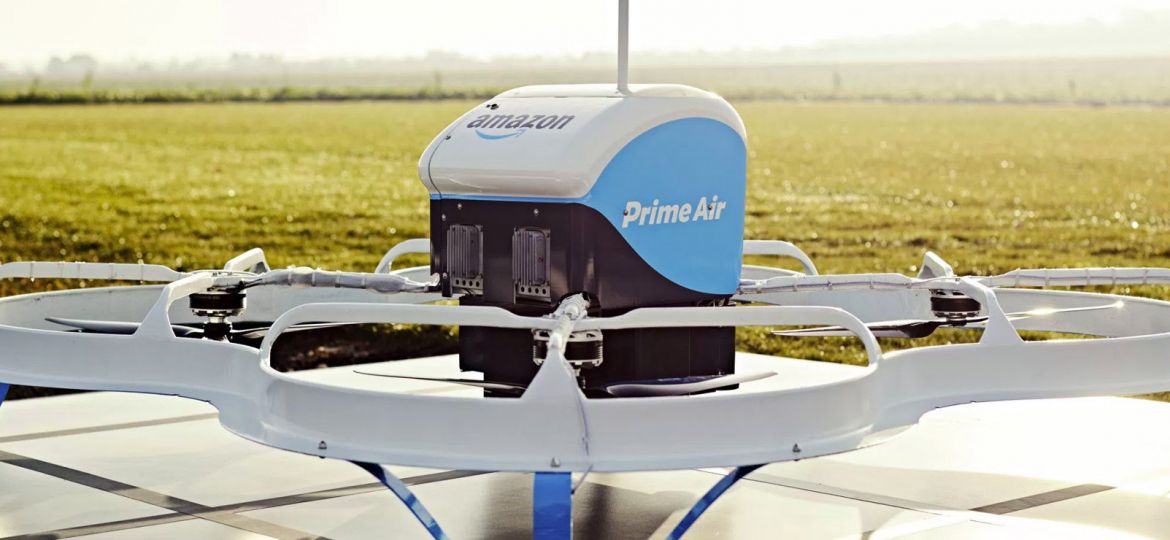
WHY THIS MATTERS IN BRIEF
- Brick and mortar retailers have always had an advantage over their online cousins when it comes to delivery times, walk in, buy your item, walk out, but on demand, real time drone deliveries will erode that advantage
Amazon announced today that his company has successfully trialled its Prime Air drone delivery service in Cambridge, UK, by delivering a TV streaming stick and bag of popcorn directly to the garden of a nearby customer and the announcement suggests that autonomous aerial delivery by drone could become a commercial reality much sooner than originally thought – albeit only for customers with huge gardens, who live close to the delivery depot, and want items weighing less than 2.6kg. For now…
While the new drone delivery service will now be available seven days a week in the short term it’s only going to be available to two lucky customers, and because of flight restrictions the drones will only be able to fly during daylight hours – which in the UK in the middle of winter amounts to about half an hour a day and during clement weather, which again, in the UK in the middle of winter means that these things are inevitably grounded until the summer swings round! Joking aside Amazon says it hopes to expand the offer to “dozens” of customers in the coming months and that for those customers, Prime Air, as it’s known, will be available for no extra cost.
The company says the delivery, which took place last week, involved fully autonomous flight, with no human pilot involved in the process. The success was announced by Amazon chief executive Jeff Bezos, who tweeted: “first ever #AmazonPrimeAir customer delivery is in the books. 13 min—click to delivery,” and while Amazon released a video of the flight no press were invited to witness the test.
First-ever #AmazonPrimeAir customer delivery is in the books. 13 min—click to delivery. Check out the video: https://t.co/Xl8HiQMA1S pic.twitter.com/5HGsmHvPlE
— Jeff Bezos (@JeffBezos) December 14, 2016
Amazon’s drone testing facility on the outskirts of Cambridge has been operating since summer 2015 and that was when the company invited the Civil Aviation Authority to witness its first test flight.
Government regulations in the UK are generally considered favourable to companies wanting to experiment with autonomous aircraft, but the restrictions still heavily limit what Amazon can test – Amazon is allowed to test drones that fly beyond line-of-sight in rural and suburban areas, conduct flights where one person operates multiple largely autonomous drones and drones that have sense-and-avoid technology.
Amazon first announced its intention to deliver packages by drone back in 2013, in a lavishly produced special on US TV show 60 Minutes and at the time, Bezos suggested that the company would begin delivery in 2018, a timescale commentators called “hugely optimistic”, citing a number of concerns around theft, liability and safety. The latest limited trials suggest that Amazon still intends to hit that 2018 target, albeit by sidestepping many of the concerns through the limited nature of the rollout and Amazon isn’t alone in the field. 7-Eleven, UPS and many other companies are already conducting their own commercial drone flights, albeit that most of those are in the US.
















